 The proliferation of illicit small arms is a problem that affects many countries in Africa. The Sahel region is one of the most affected. These undocumented and mostly illegally held arms do not only threaten the safety and security of communities but are also used by dangerous transnational criminal networks engaged in various forms of trafficking, including of weapons, humans and illegal drugs. In many instances these arms also fall into the wrong hands where they are often used by terrorists, violent extremists, rebel groups and other non-state actors to spread insecurity, commit atrocities and generally threaten social order and stability. As a result many countries now increasingly recognize that the continued proliferation of these illicit arms not only constitutes a grave threat to wellbeing of communities in the region, but also a serious impediment to social and economic development.
The proliferation of illicit small arms is a problem that affects many countries in Africa. The Sahel region is one of the most affected. These undocumented and mostly illegally held arms do not only threaten the safety and security of communities but are also used by dangerous transnational criminal networks engaged in various forms of trafficking, including of weapons, humans and illegal drugs. In many instances these arms also fall into the wrong hands where they are often used by terrorists, violent extremists, rebel groups and other non-state actors to spread insecurity, commit atrocities and generally threaten social order and stability. As a result many countries now increasingly recognize that the continued proliferation of these illicit arms not only constitutes a grave threat to wellbeing of communities in the region, but also a serious impediment to social and economic development.
In the face of this growing threat, the countries of the region, their development partners including the United Nations, the African Union and Regional Economic Communities such as the Economic Community for West Africa (ECOWAS) have over the last few years rallied together to craft strategies to address this menace. A major concern for the international community has been the need to take measures to secure and better manage state held arms stockpiles in order to ensure and prevent their diversion into the illicit market.
One such initiative is the Physical Security and Stockpile Management – PSSM Sahel project jointly funded by the European Union and the United Nations Office for Disarmament Affairs. This three-year project aims to promote stability in the region by supporting six countries in the Sahel, namely Burkina Faso, Chad, Mali, Mauritania, Niger and Nigeria to improve the security and management of state-held arms. Through this project, countries are provided with support to reform their legal systems in order to align them with international norms and to achieve conformity with their obligations under the different global and regional arms-control treaties and instruments. Countries are also provided with support to build their technical capacity to administer and operate arms security and management systems in accordance with internationally established norms and standards. These include training in the implementation of the International Small Arms Control Standards (ISACSs) and the International Ammunition Technical Guidelines (IATGs). A key innovative feature of this project is the piloting of 18 model arms-stockage installations to be used as in-country reference points in training and development of similar installations.
Sensitization at both national and regional levels is one of the key components of this project. At the national level, the project does this by convening broad-based consultations bringing together different stakeholders from government, civil, society private and state security agencies to discuss the issue of arms control in their countries.
At the regional level UNREC launched the project, UNREC by organizing a Wilton Park Conference under the theme “Towards better Physical Security and Stockpile Management (PSSM) in the Sahel region", on 14 and 15 March 2016 in Lomé. The event gathered the National Focal Points and National Commissions on Small Arms and Light Weapons (SALW) from six States of the Sahel as well as experts from international organizations (African Union, ECOWAS, and the European Union), relevant UN agencies, specialized agencies such as INTERPOL, BICC, MAG, Conflict Armament Research (CAR), and the Sahel G5. The conference offered an opportunity to exchange experiences, obtain the necessary political buy-in to conduct project activities, as well as a platform to discuss regional cooperation.
Also from 15 – 17 November 2016, UNREC brought together senior government officers from the beneficiary countries and international experts from regional and nongovernmental organizations actively engaged in the PSSM activities to share experiences and information gained from the National Consultations held in these countries during the initial phase of the project.
The latest round of national consultations on arms control took place in Nouakchott, in the Islamic Republic of Mauritania from 24 to 25 April 2017. This workshop held in collaboration with the National Focal Point on Small Arms and Light Weapons, under the auspices of the Ministry of Security and Decentralization. It brought together participants from the ministries of Defense, Foreign Affairs, Security and Justice, as well as the military, gendarmerie, immigration and customs. Others taking part included members of the security committee in the national assembly and civil society representatives.
During the workshop, participants reviewed the general situation with regard to the proliferation of small Arms and Light Weapons in Mauritania and the larger Sahel region and the danger to public safety and state security posed by the unregulated circulation of these arms. Participants were also presented with information regarding existing international and regional arms control treaties and instruments, amongst them the International Arms Trade Treaty –ATT, and the United Nations Program of Action on Small Arms –UNPOA. They were also briefed on the process of achieving compliance with these measures.
Of great interest to the Mauritanian hosts was the modalities and process of reinforcing national coordinative mechanisms on arms control. In this regard UNREC was able to share its experience of supporting other countries in the region to put in place National Small Arms and Light Weapons Commissions. It also expressed its readiness to support the Mauritanian authorities in the process of developing their own national coordinative mechanisms.
The rich profile of participants allowed the workshop to discuss the problem of arms control and the challenges it posed in the Mauritanian context from a fairly wide perspective. Besides, it also allowed participants to discuss the place and importance of PSSM in the overall security infrastructure and to understand its impact on the social and economic development of the country. The workshop marked the start of the next phase of the project which will be implemented by UNREC in partnership with the Mines Advisory Group (MAG) which will provide technical capacity building in stockpile security and management and pilot model arms stockage facilities.
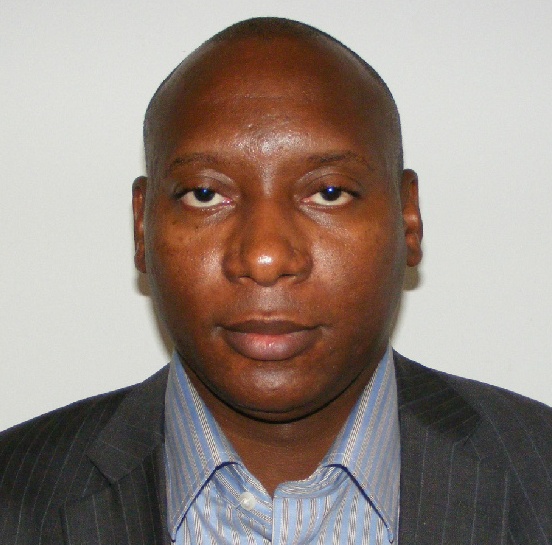 UN High Representative for Disarmament Affairs appoints Mr. Anselme N. Yabouri, as the new Director of UNREC. Mr.Yabouri took up his function on 1 September 2017.
UN High Representative for Disarmament Affairs appoints Mr. Anselme N. Yabouri, as the new Director of UNREC. Mr.Yabouri took up his function on 1 September 2017. Who we are
Who we are  Newsletter/UNREC Focus
Newsletter/UNREC Focus  Contact Us
Contact Us  Overview
Overview  Specific Projects
Specific Projects  Calendar of Events
Calendar of Events  Useful Links
Useful Links  Employment
Employment  Rosters of Experts
Rosters of Experts  Internships
Internships 
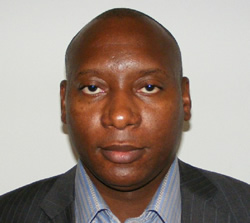

 In a landmark development, senior political decision-makers and technical directors of the government of Mali have given their mark of approval to the PSSM Standard Operating Procedures (SOPs) developed by United Nations Regional Center for Peace and Disarmament in Africa (UNREC) within the framework of the UNREC-led
In a landmark development, senior political decision-makers and technical directors of the government of Mali have given their mark of approval to the PSSM Standard Operating Procedures (SOPs) developed by United Nations Regional Center for Peace and Disarmament in Africa (UNREC) within the framework of the UNREC-led 
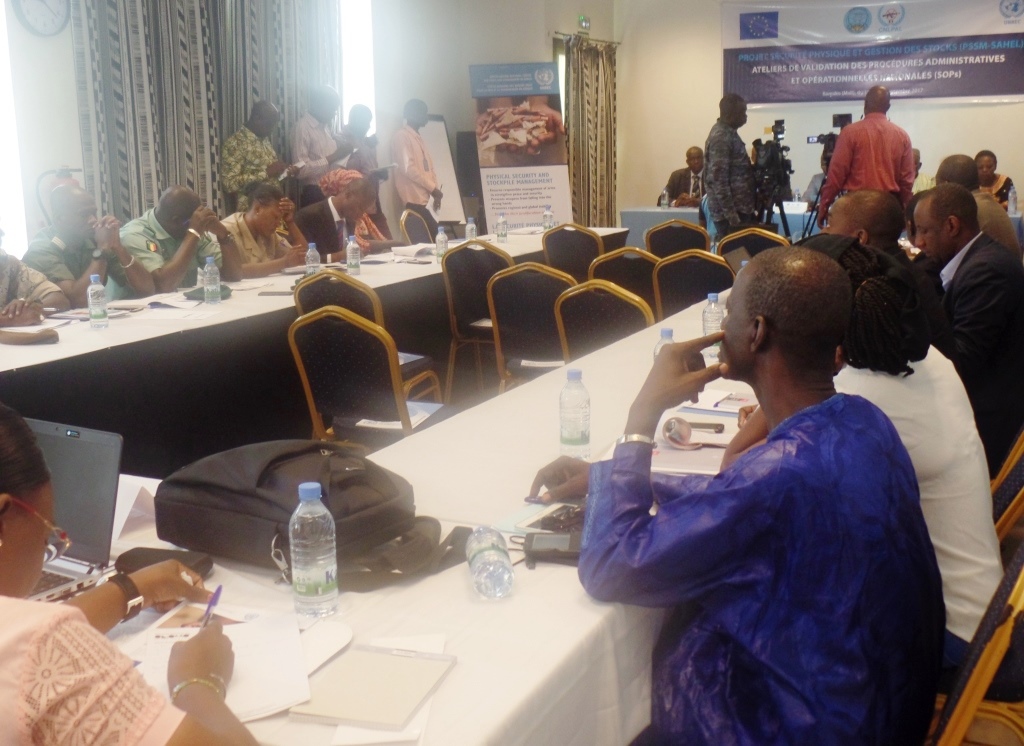
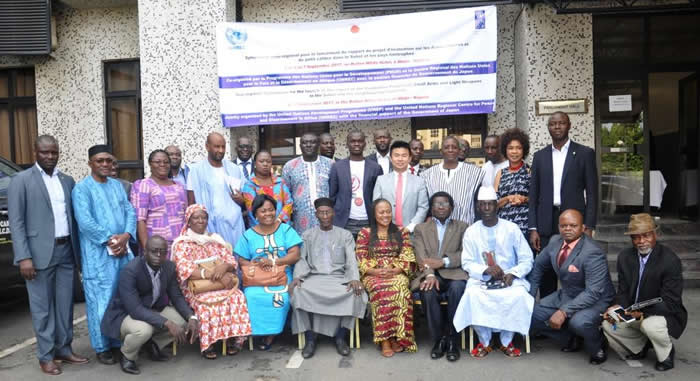
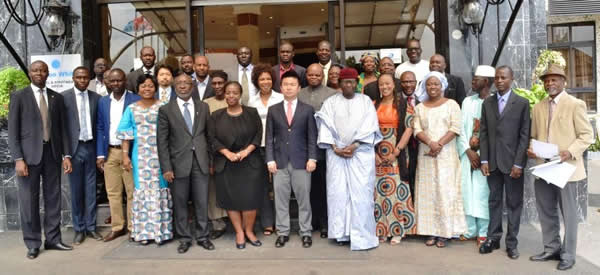 The illicit proliferation, circulation and trafficking of Small Arms and Light Weapons (SALW) in the Sahel region and neighboring countries constitutes a threat to peace and security. This phenomenon has not only increased the impact and intensity of armed conflicts, but also led to a generalized insecurity hindering the economic, social and political development of countries in the region.
The illicit proliferation, circulation and trafficking of Small Arms and Light Weapons (SALW) in the Sahel region and neighboring countries constitutes a threat to peace and security. This phenomenon has not only increased the impact and intensity of armed conflicts, but also led to a generalized insecurity hindering the economic, social and political development of countries in the region.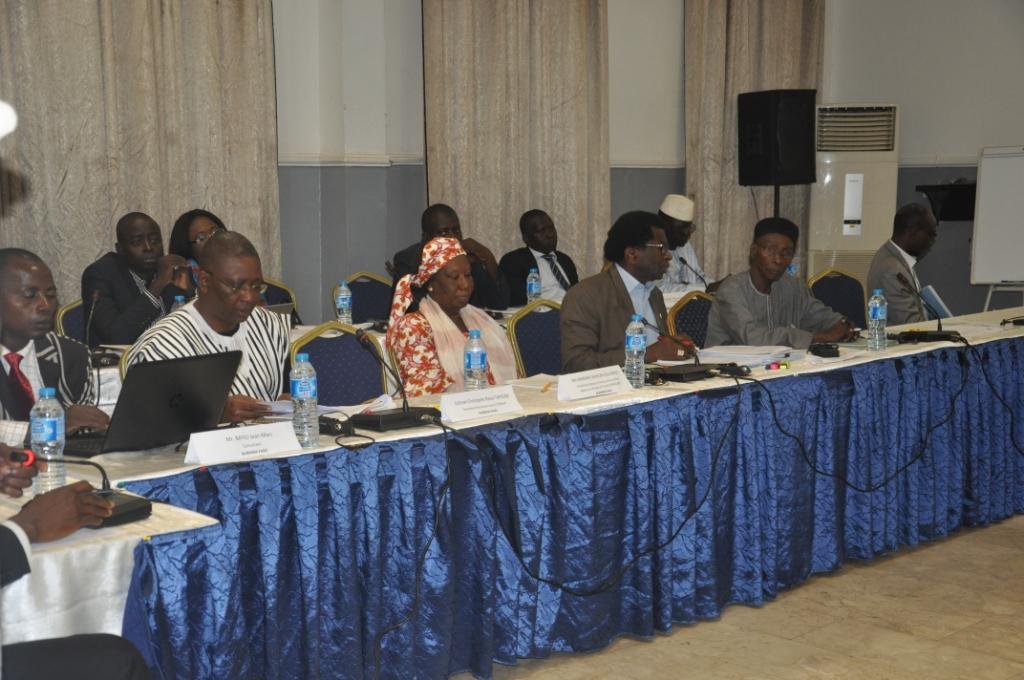

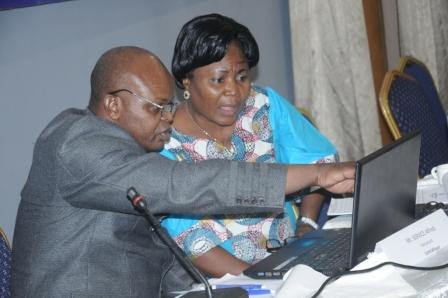
 COMMUNIQUE DE PRESSE
COMMUNIQUE DE PRESSE The United Nations Regional Centre for Peace and Disarmament in Africa (UNREC) and The United Nations Development Programme (UNDP) sub regional platform for West and Central Africa are organising a symposium for the adoption of an Action Plan to fight against the proliferation of Small Arms and Light Weapons (SALW) in the Sahel region. The activities will take place from 6 to 7 September 2017 at Bolton White Hotel in Abuja - Nigeria.
The United Nations Regional Centre for Peace and Disarmament in Africa (UNREC) and The United Nations Development Programme (UNDP) sub regional platform for West and Central Africa are organising a symposium for the adoption of an Action Plan to fight against the proliferation of Small Arms and Light Weapons (SALW) in the Sahel region. The activities will take place from 6 to 7 September 2017 at Bolton White Hotel in Abuja - Nigeria.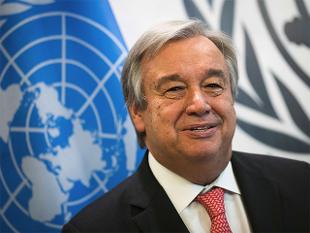 The present report contains an account of the activities undertaken by the United Nations Regional Centre for Peace and Disarmament in Africa from July 2016 to June 2017.
The present report contains an account of the activities undertaken by the United Nations Regional Centre for Peace and Disarmament in Africa from July 2016 to June 2017. 5
5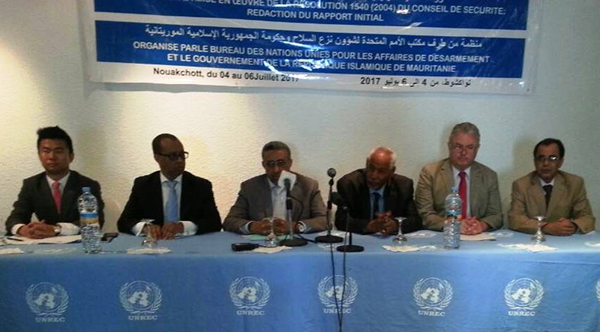
 The proliferation of illicit small arms is a problem that affects many countries in Africa. The Sahel region is one of the most affected. These undocumented and mostly illegally held arms do not only threaten the safety and security of communities but are also used by dangerous transnational criminal networks engaged in various forms of trafficking, including of weapons, humans and illegal drugs. In many instances these arms also fall into the wrong hands where they are often used by terrorists, violent extremists, rebel groups and other non-state actors to spread insecurity, commit atrocities and generally threaten social order and stability. As a result many countries now increasingly recognize that the continued proliferation of these illicit arms not only constitutes a grave threat to wellbeing of communities in the region, but also a serious impediment to social and economic development.
The proliferation of illicit small arms is a problem that affects many countries in Africa. The Sahel region is one of the most affected. These undocumented and mostly illegally held arms do not only threaten the safety and security of communities but are also used by dangerous transnational criminal networks engaged in various forms of trafficking, including of weapons, humans and illegal drugs. In many instances these arms also fall into the wrong hands where they are often used by terrorists, violent extremists, rebel groups and other non-state actors to spread insecurity, commit atrocities and generally threaten social order and stability. As a result many countries now increasingly recognize that the continued proliferation of these illicit arms not only constitutes a grave threat to wellbeing of communities in the region, but also a serious impediment to social and economic development.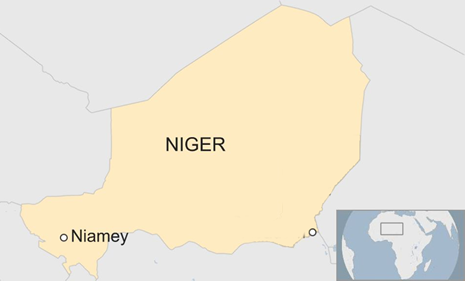 UNREC apporte son appui au Niger dans le cadre de la validation des procédures standard opérationnelles (SOP) et procédures administratives de gestion des armesLe Centre Régional des Nations Unies pour la paix et le désarmement en Afrique (UNREC), en collaboration avec les autorités nationales nigériennes, organise une série d’ateliers sur le thème : « Validation des Procédures standards opérationnelles (SOP) et procédures administratives ». Les activités se dérouleront du 11 au 14 juillet 2017 au Grand Hôtel de Niamey au Niger.
UNREC apporte son appui au Niger dans le cadre de la validation des procédures standard opérationnelles (SOP) et procédures administratives de gestion des armesLe Centre Régional des Nations Unies pour la paix et le désarmement en Afrique (UNREC), en collaboration avec les autorités nationales nigériennes, organise une série d’ateliers sur le thème : « Validation des Procédures standards opérationnelles (SOP) et procédures administratives ». Les activités se dérouleront du 11 au 14 juillet 2017 au Grand Hôtel de Niamey au Niger.